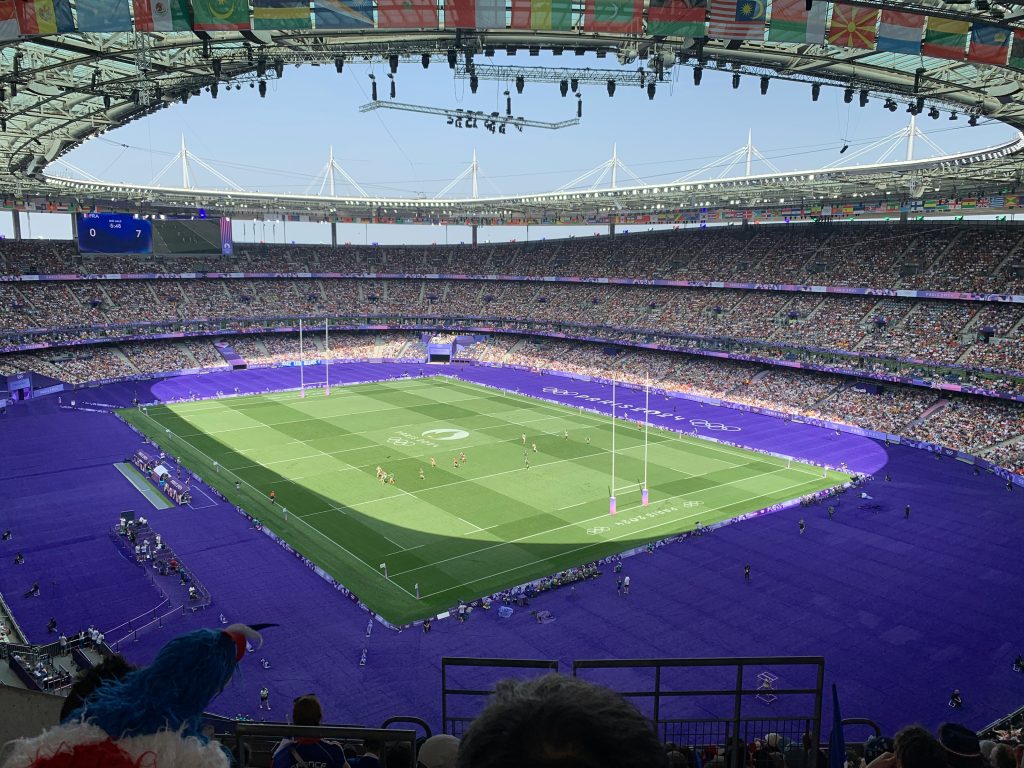
Olympic Swimmer Luana Alonso Disqualified from Paris 2024 for Inappropriate Behavior
In a surprising turn of events at the Paris 2024 Olympics, Paraguayan swimmer Luana Alonso has been removed from the athletes’ village following allegations of creating an ‘inappropriate environment’. The decision comes after reports surfaced that the 20-year-old swimmer had allegedly sneaked out to visit Disneyland during the Olympic tournament, raising eyebrows among her teammates and officials.
Alonso, who had been a promising figure in the swimming world, represented Paraguay on the international stage before her unexpected retirement from the sport after failing to qualify for the later rounds of the competition. The incident has sparked considerable debate around athlete conduct and the responsibilities that come with representing one’s country on such a prestigious platform.
The Olympic Games, known for their strict codes of conduct and emphasis on sportsmanship, have seen numerous controversies over the years. However, the case of Alonso stands out due to the circumstances surrounding her removal. Allegations of inappropriate behavior within the athletes’ village not only jeopardize the reputation of the individual athlete but also reflect on the team and the nation they represent.
As the Olympic spirit is built on discipline, dedication, and a sense of community among athletes, Alonso’s actions have raised questions about the pressures faced by young athletes in high-stakes environments. With the eyes of the world on them, the expectations for behavior and performance can be overwhelming, potentially leading to decisions that stray from the athlete’s usual conduct.
The incident has not only impacted Alonso’s Olympic journey but has also ignited discussions on the support systems available for athletes. Many believe that more robust guidance and mental health resources could help prevent such situations from occurring in the future. The International Olympic Committee (IOC) may need to reevaluate how they prepare and support athletes, especially those who are young and may not yet have the experience to navigate the complexities of the Olympic environment.
Despite her early exit from the competition, Alonso’s story is a reminder of the intense scrutiny athletes face and the importance of maintaining professionalism and focus. As the Olympics continue, the spotlight will inevitably shift to how the remaining athletes manage their time and adhere to the strict guidelines set forth by their respective teams.
In light of this incident, it remains to be seen how the Paraguayan swimming federation will address the situation and the impact it will have on future athletes representing the nation. The broader implications for the Olympic movement at large are also significant, as they must balance the celebration of athletic achievement with the need for accountability and ethical conduct.
As the Paris 2024 Olympics progress, the narrative surrounding Luana Alonso will likely serve as a cautionary tale for young athletes. It underscores the vital importance of responsibility, not only to oneself but also to teammates, coaches, and the wider athletic community.
As the Olympic Games aim to inspire unity and excellence among nations, the events surrounding Alonso’s disqualification remind us that the journey of an athlete is not just about competition but also about upholding the integrity of the sport. With this chapter now closed for Alonso, the focus will shift back to the pool, where other athletes continue to strive for glory, hopefully free from the pitfalls that led to her removal from the Olympic stage.
Tags: Athlete Conduct, Luana Alonso, Mental Health, Olympics

相關頭條